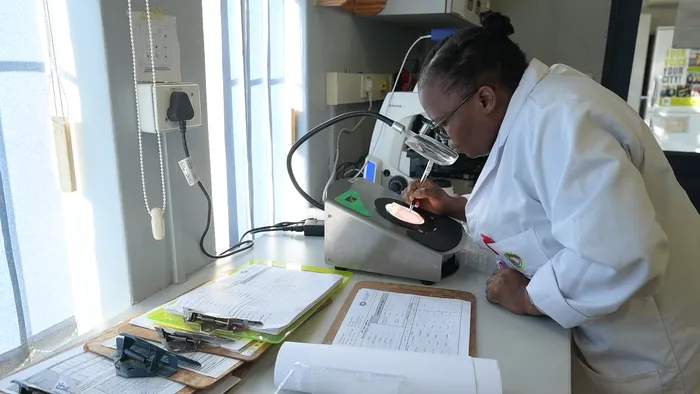Foodborne illness outbreak in Cape Town restaurant prompts calls for improved food safety

Environmental health inspections revealed issues including overstocking of cold storage and non-compliance with the "first-in, first-out" principle at a Cape Town restaurant.
Image: Supplied
Food handling practices and inadequate hygiene among staff members may have contributed to the spread of a foodborne disease (FBD) outbreak resulting in the closure of a Cape Town restaurant.
The National Institute for Communicable Diseases (NICD) yesterday released the findings of an investigation into circumstances leading to 46 suspected cases of Shigella spp. or enteroinvasive Escherichia coli (EIEC) - closely related bacteria that cause gastroenteritis, or stomach flu, in humans.
Shigella spp. is highly contagious and can result in asymptomatic infection to severe bloody diarrhoea. Fever, headache, malaise and vomiting are often the initial symptoms.
The report details how on February 8, 2024, the Western Cape Provincial Communicable Disease Control Co-ordinator received a notification from the NICD concerning a potential FBD outbreak linked to a restaurant.
“At approximately 10pm, a general practitioner (GP) informed the NICD of two patients who had presented at his practice with severe diarrhoea and high temperatures. The patients reported that they were a party of five, all of whom had consumed prawns during dinner at (the) restaurant."
Three of these patrons were admitted to private hospitals with gastrointestinal symptoms. The GP also informed the restaurant of the cases via email. The City Health Environmental Health Practitioners (EHPs) were informed on February 9, 2024, and an outbreak investigation and response was initiated.
“The outbreak investigation and response were conducted to confirm the existence of an outbreak, identify additional cases, identify the source of the outbreak, and implement control measures. On February 10, 2024, two of the hospitalised patients tested positive for Shigella spp./Enteroinvasive Escherichia coli (EIEC) using polymerase chain reaction (PCR) testing.”
Overall, 46 suspected cases were identified: 12 staff members and 34 patrons. Clinical specimens (stool or rectal swabs) were collected from 49 individuals, and 33 tested positive for Shigella spp./Enteroinvasive Escherichia coli (EIEC) - 6 patrons and 27 staff members.
Following the incident, an environmental health inspection was done. Ultimately researchers concluded that food handling practices and inadequate hygiene among staff members may have contributed to the spread of enteric pathogens during the outbreak.
Environmental health inspections revealed issues including overstocking of cold storage and non-compliance with the "first-in, first-out" principle. While a definitive source of contamination could not be identified, contaminated food or a food handler was likely responsible.
The closure of the restaurant and prompt public and environmental health actions prevented the occurrence of additional cases.
Following investigations, several interventions were implemented, including retraining of staff members on food safety, chemical safety, and effective hand and personal hygiene.
The restaurant was deep-cleaned and disinfected, researchers said.
Lead investigator Janine Bezuidenhoudt said: “Restaurants, tuck shops, and fast-food establishments can all be sources of these illnesses. I hope this study continues the conversation about the risk and importance of foodborne diseases and how they can be prevented. We urgently need national Shigella guidelines to guide outbreak responses. It is also crucial for individuals with foodborne illness to seek healthcare for proper diagnosis and treatment, including specimen collection.”
Cape Times